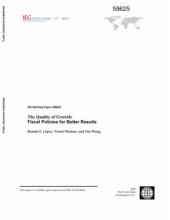/ library resources
Showing items 4411 through 4419 of 4457.There is much in common between the agricultural sectors of the United States and Canada.
Agriculture in Western Europe enjoys a degree of diversity that reflects a wide variety of soils and climatic conditions ranging from the arid Mediterranean regions to the Arctic Circle.
The story of agricultural policy in Northeast Asia over the past 50 years illustrates the dramatic changes that can occur in distortions to agricultural incentives faced by producers and consumers at different stages of economic development.
This study on Latin America is based on a sample of eight countries, comprising the big four economies of Argentina, Brazil, Chile, and Mexico; Colombia and Ecuador, two of the poorest South American tropical countries; the Dominican Republic, the largest Caribbean economy; and Nicaragua, the poo
This chapter begins with a brief summary of economic growth and structural changes in the region since the 1950s and of agricultural and other economic policy developments as they affected the farm sector at the time of and in various stages after independence from colonial powers.
Earnings from farming in many developing countries have been depressed by a pro-urban bias in own-country policies as well as by governments of richer countries favoring their farmers with import barriers and subsidies.
The world faces unprecedented opportunities to reduce global poverty and improve human welfare. Strong global growth and better economic policies in recent years have substantially reduced poverty in many developing countries.
The operations policy on Development Policy Lending (DPL), approved by the Board in August 2004, requires that the Bank systematically analyze whether specific country policies supported by an operation are likely to have "significant effects" on the country's environment, forests, and other natu
This strategic framework serves to guide and support the operational response of the World Bank Group (WBG) to new development challenges posed by global climate change. Unabated, climate change threatens to reverse hard-earned development gains.
Paginering
Land Library Search
Through our robust search engine, you can search for any item of the over 73,000 highly curated resources in the Land Library.
If you would like to find an overview of what is possible, feel free to peruse the Search Guide.









